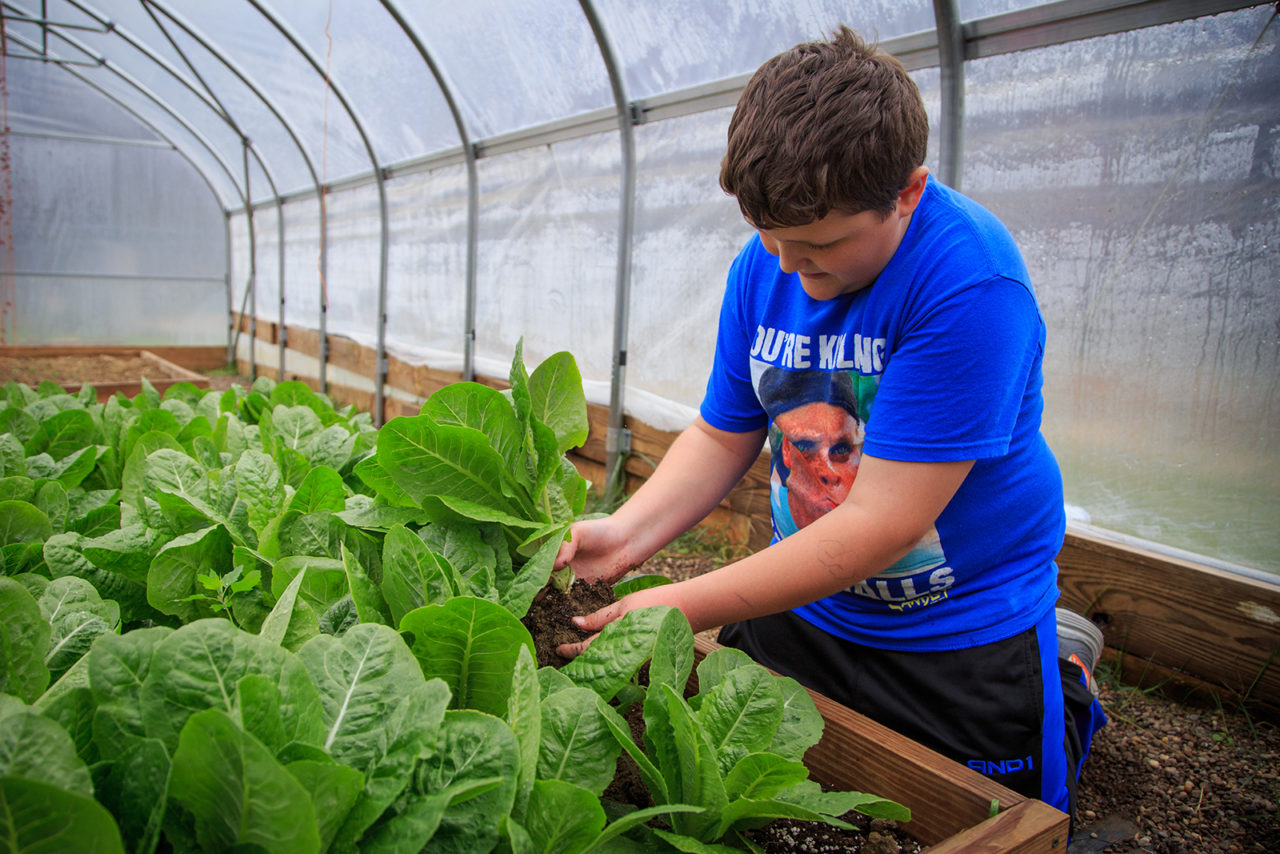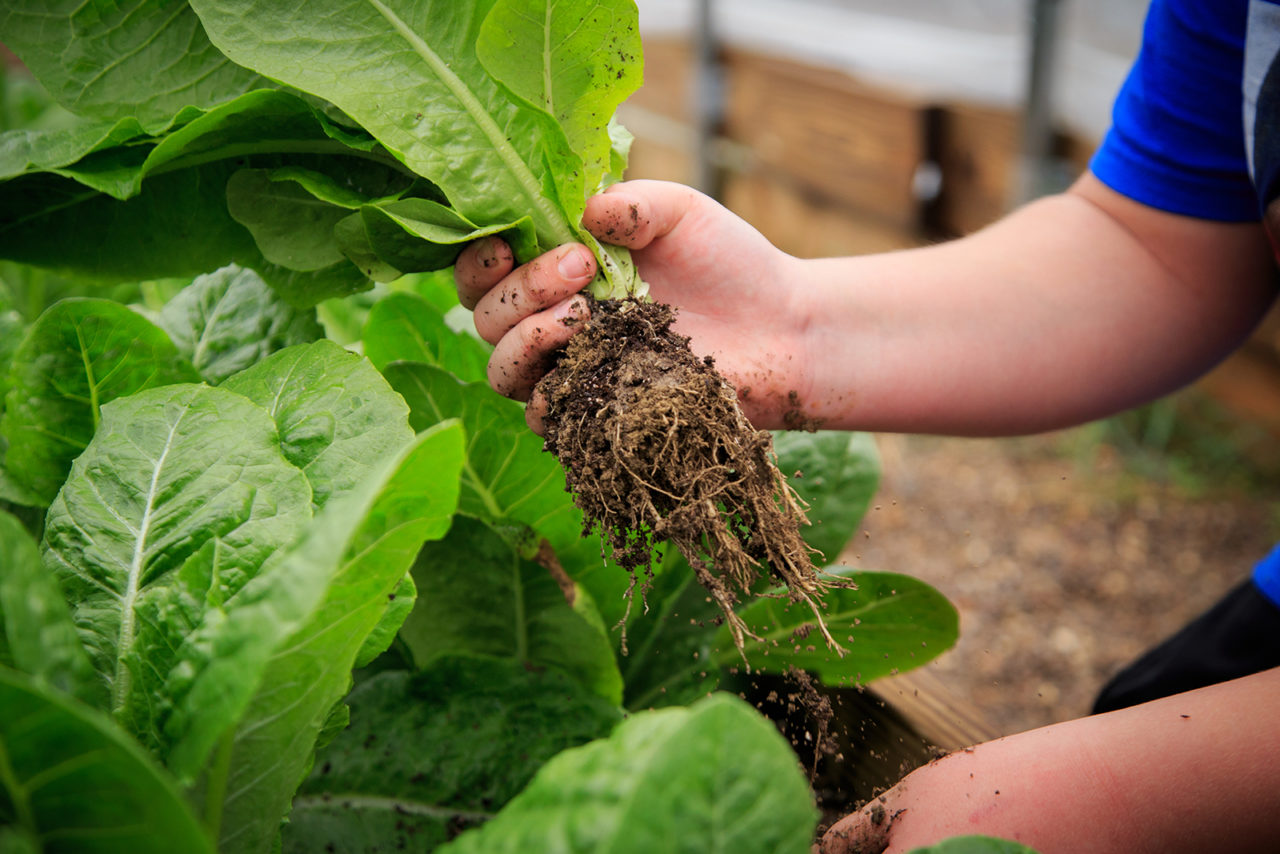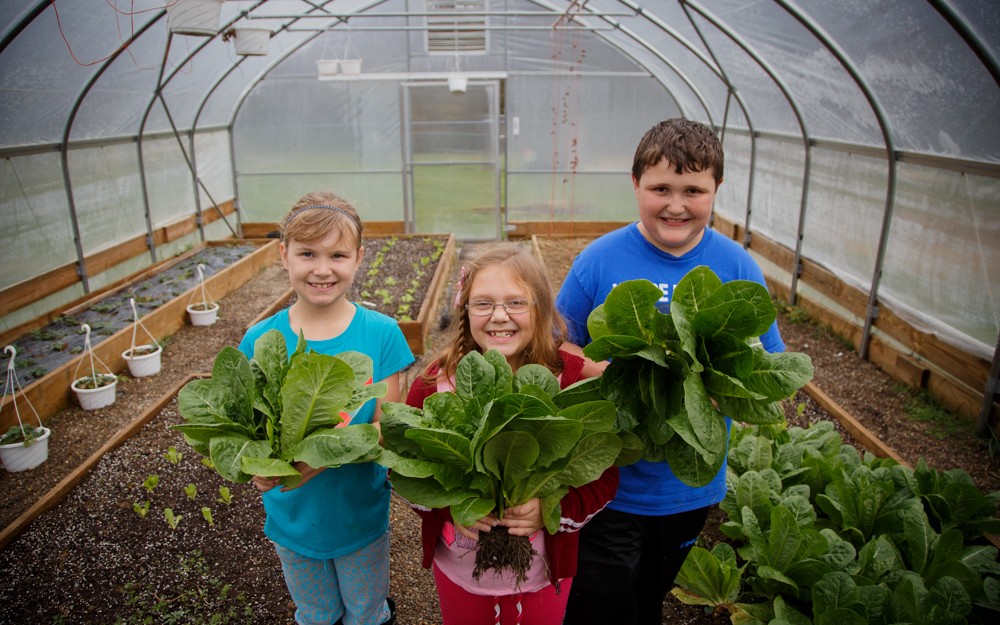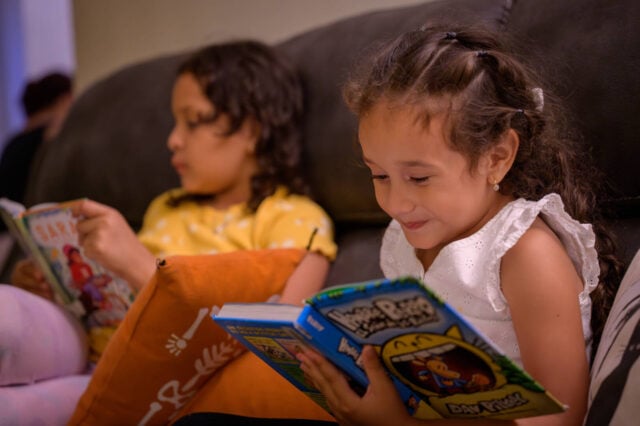When snacks are served at Mount Vernon Elementary School, students don’t clamor for cookies or chips.
“You ask them and it’s, ‘Can we have a vegetable tray?’” says Nancy Curkendall, a kindergarten teacher at the 58-student school serving Brownton, West Virginia.
Or they might request “plain yogurt smoothies with strawberries,” principal and teacher Tammy Tucker says.
If the students are thinking about veggies and berries, there’s a good reason. The children, along with Mount Vernon staff and parents, tend a school garden that not only provides produce and horticulture lessons but also teaches them about healthy eating in a community where hunger is a persistent problem.
About 18% of the nearly 17,000 residents in Barbour County, where Mount Vernon is located, live below the poverty level, according to the most recent U.S. Census Bureau statistics. The median household income is $37,327.
Nancy and Tammy say that students at Mount Vernon, as well as the rest of the county, are all eligible for the free or reduced-price school breakfast and lunch program. Those participating in KidREACH, a World Vision afterschool, tutoring, and mentoring program receive dinner as well. Nearly 88% of Mount Vernon students signed up.

Reading, writing, gardening, and fighting hunger
“Some of our families, they work; they make minimum wage. It’s very hard to make it,” Tammy says. “So they are very appreciative just to have the food.”
Nancy mentions a child who always asks about KidREACH “so he could have dinner.” When he seemed especially hungry one Friday afternoon, the only day the program isn’t offered, she assured him that his mom would have something good for him to eat.
“He said, ‘We don’t have much food at home,’” Nancy says. “A lot of times we don’t hear about it unless the kids say something. The parents won’t come to us and tell us they’re having a hard time. It may not be a full-time situation, but for a while, they’re having a rough time. Especially in winter, when heating costs are up.”
Angie, Tiffany, and Melissa, all moms of Mount Vernon students and active school volunteers, say KidREACH has helped their children greatly improve their reading and math skills while giving them new experiences.
“Some parents just don’t have the opportunity to do things,” Tiffany says. “If all those kids weren’t able to attend that field trip last year that KidREACH took [to the National Aviary in Pittsburgh], some of those kids would never get out of the county.”
In an ongoing KidREACH activity, an extension agent from West Virginia University makes weekly visits to show children and parents how to garden from seed and “starts” in a high tunnel, a plastic-covered greenhouse.
“They teach parents how to can and how to prepare food, how to prepare fruits and vegetables,” Tammy says. “They have kids sample things they’d never want to eat, like kale. They eat it because we raised it. And it’s very good for them.”
Asked what he liked to grow and eat, Isaac, Angie’s 9-year-old son, replies: “Peppers, strawberries, lettuce, and cauliflower. They are healthy and fun to eat; you can put them in salads and drinks.”
Juicy strawberries top the list for Melodie, 8, and Haley, 9, the daughters of Tiffany and Melissa, respectively. The garden project shows them “how to grow plants and stuff” and that “you can eat healthier,” the girls say.
The garden produces “sweet snap peas, the best ones you’ve ever eaten,” Angie says. “They are amazing. Nothing like out of a store.”

KidREACH grows hope
While dinner and garden produce are attractions to KidREACH, it’s the academic help that’s making a notable impact.
High school dropouts in West Virginia are tracked by which elementary school they attended, Tammy says, and for a number of years, none have been former Mount Vernon students.
“So it’s something to do with KidREACH,” she says, citing the extra time to go over school lessons, field trips, initiatives with technology companies, and partnership with World Vision’s Appalachia field site in Philippi, West Virginia. World Vision provides KidREACH coordination, training, school supplies, and other support to small, rural West Virginia communities with help from public and private grants and generous donors.
Overall, the help inside and outside the classroom offers hope to a community where many struggle to get by.
“We’re a family here,” Tammy says. “You have that moment to [ask students every day], ‘What’s something great about your day?’ Sometimes they say, ‘I don’t have a great thing.’”
But given enough time, “they can always come up with something,” Nancy says, “which teaches them to look for the good thing and not for the bad stuff.”


